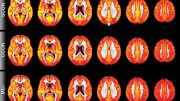
It is currently estimated that over 5 million individuals in the United States are affected by Alzheimer’s.
Education, employment, and social life may all help protect the brain against cognitive decline.
Why do some individuals with Alzheimer’s disease-related amyloid plaques in their brains exhibit no symptoms of the condition while others with the same amount of plaque have obvious memory and cognitive issues? In a study published in Neurology, the medical journal of the American Academy of Neurology, researchers examined genetic and life cycle factors that may help establish a “cognitive reserve” that serves as a buffer against the disease.
They discovered that participation in clubs, religious organizations, athletic or artistic endeavors, educational attainment by age 26, employment, and reading proficiency may all have an impact on the brain’s cognitive reserve. According to the research, learning new things throughout one’s life may help protect the brain, especially for those who performed worse on cognitive tests as children. Previous research has indicated that those with poor scores in childhood are more likely to have a greater cognitive decline in old age than individuals with high scores.
“These results are exciting because they indicate that cognitive ability is subject to factors throughout our lifetime and taking part in an intellectually, socially, and physically active lifestyle may help ward off cognitive decline and dementia,” said study author Dorina Cadar, Ph.D., Brighton and Sussex Medical School in the United Kingdom. “It’s heartening to find that building up one’s cognitive reserve may offset the negative influence of low childhood cognition for people who might not have benefited from an enriching childhood and offer stronger mental resilience until later in life.”
1,184 individuals who were born in the UK in 1946 participated in the study. They completed cognitive tests when they were eight years old and again when they were 69 years old. A cognitive reserve index combines people’s education level at age 26, engagement in enriching leisure activities at age 43, and occupation up to age 53. Their reading skills at age 53 were also examined as a measure of overall lifelong learning distinct from schooling and employment.
The cognitive test participants took at age 69 has a maximum total score of 100. The average score for this group was 92, with the lowest score being 53 and the highest score being 100.
The researchers found that higher childhood cognitive skills, a higher cognitive reserve index, and higher reading ability were all associated with higher scores on the cognitive test at age 69. Researchers found that for every unit increase in childhood test scores, the old-age cognitive test score increased by 0.10 points on average. For every unit increase in the cognitive reserve index, cognitive scores increased by 0.07 points on average, and for every unit increase in reading ability, cognitive scores increased by 0.22 points on average.
People with a bachelor’s degree or other higher education qualifications scored 1.22 points more on average than those with no formal education. People who engaged in six or more leisure activities such as adult education classes, clubs, volunteer work, social activities, and gardening scored 1.53 points more on average than people who engaged in up to four leisure activities. Those with a professional or intermediate level job scored 1.5 points more on average than those with partly skilled or unskilled occupations.
The study also found that for people with a higher cognitive reserve index and reading ability, their scores on cognitive tests did not decline as rapidly as people with lower scores, regardless of their test scores at age eight.
Michal Schnaider Beeri, Ph.D., of Icahn School of Medicine at Mount Sinai in New York, who wrote an editorial accompanying the study, said, “From a public health and societal perspective, there may be broad, long-term benefits in investing in high education, widening opportunities for leisure activities and providing cognitive challenging activities for people, especially those working in less skilled occupations.”
A limitation of the study is that the people who remained involved in the study until age 69 may be more likely to be healthier, have better overall thinking skills, and be more socially advantaged than those who did not complete the study, so the results may not reflect the general population.
Reference: “Moderating Role of Cognitive Reserve Markers Between Childhood Cognition and Cognitive Aging” by Pamela Almeida-Meza, Marcus Richards and Dorina Cadar, 3 August 2022, Neurology.
DOI: 10.1212/WNL.0000000000200928
The study was funded by the U.K. Alzheimer’s Society, the U.K. Medical Research Council, the U.S. National Institute on Aging, and the U.K. Economic and Social Research Council.









Perhaps the more affluent simply have better diets, fewer serious accidents and better healthcare during critical stages of their lives?